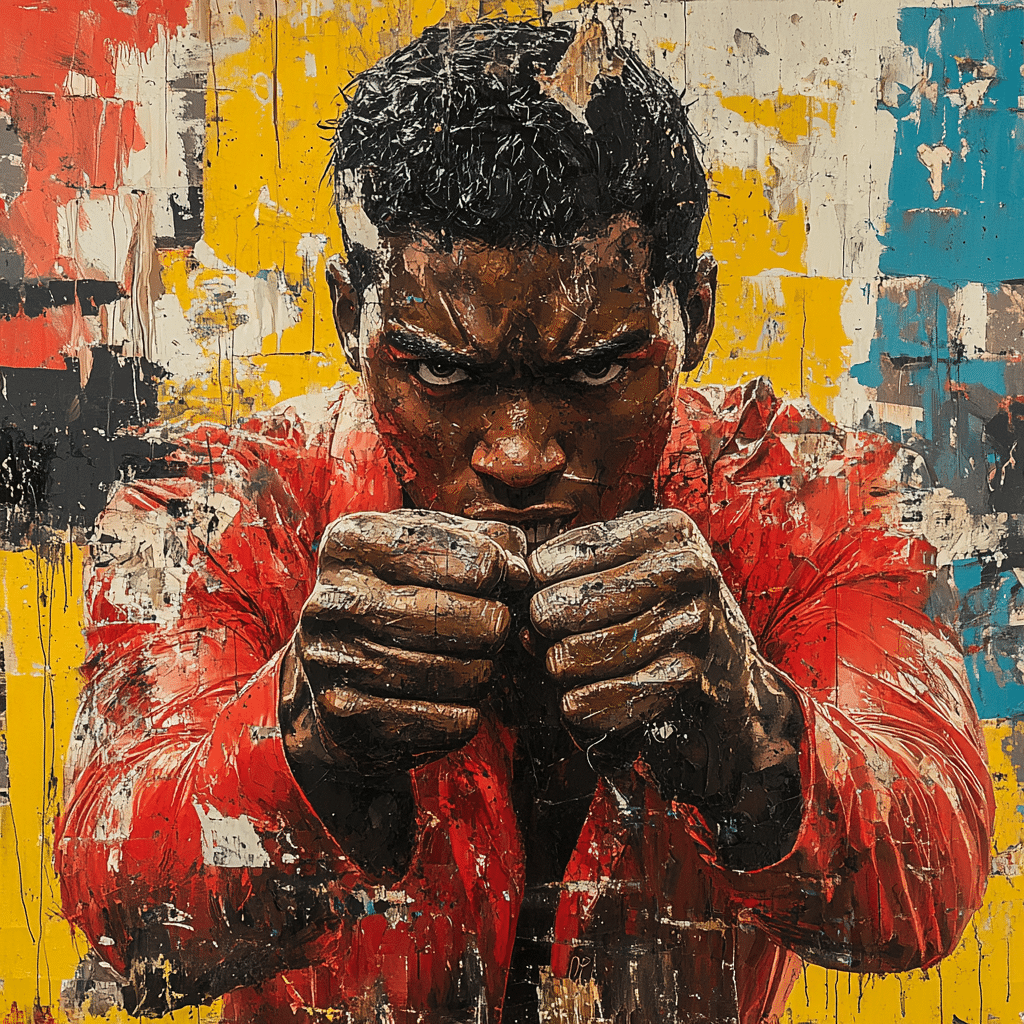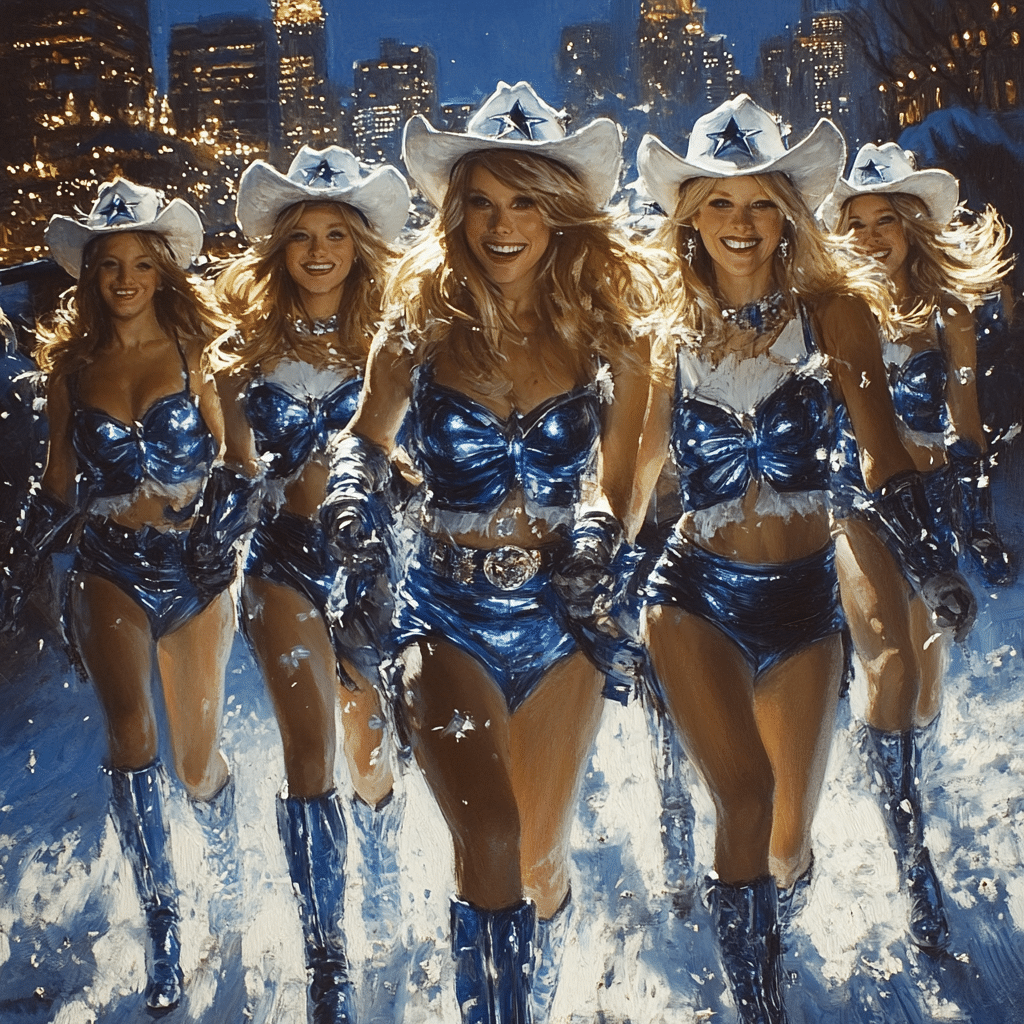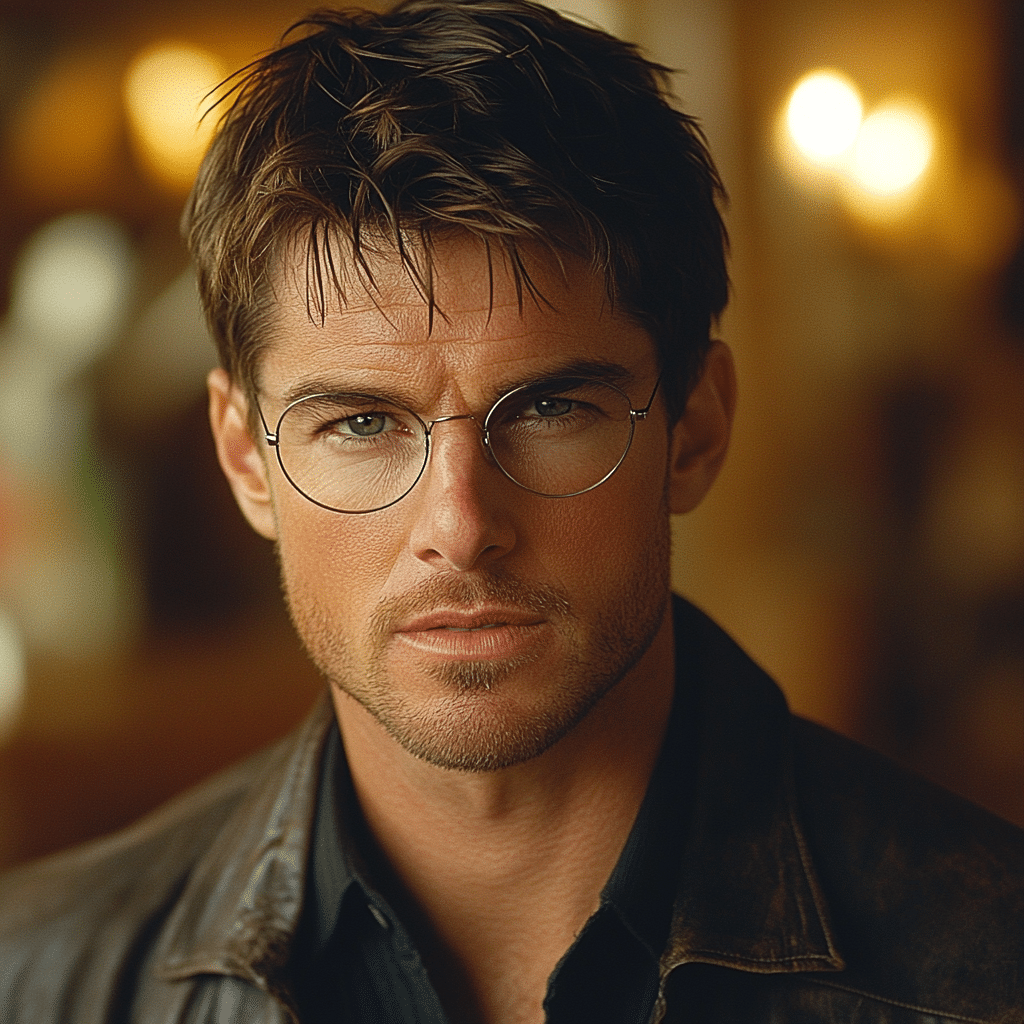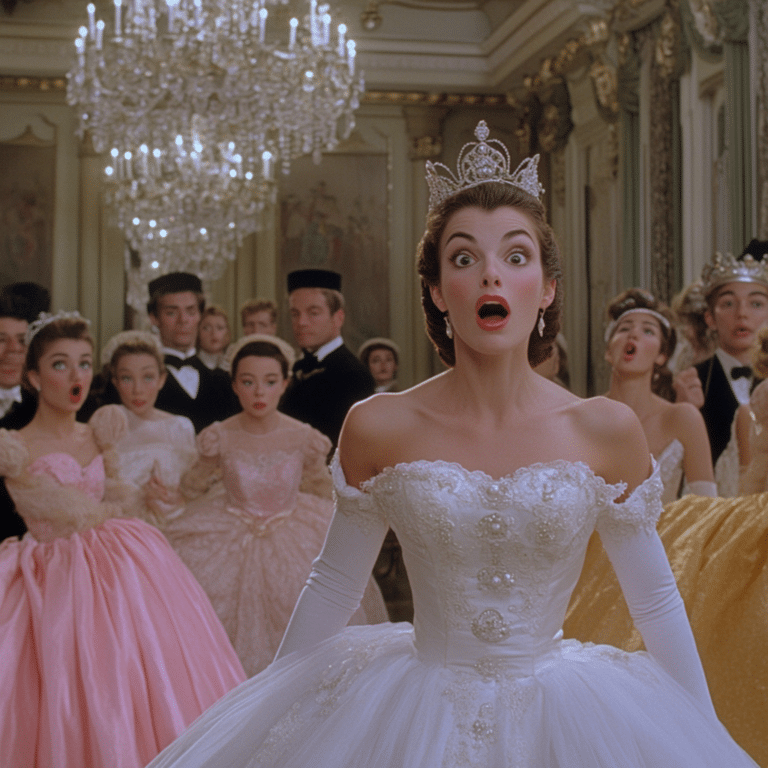In the pantheon of Hollywood’s lauded icons, few have blazed as many trails as the inimitable Woody Strode. In his towering presence both onscreen and off, he carved a niche that generations continue to commemorate. Woody Strode’s life story embodies the tenacity and transformative power of the human spirit, transcending barriers and shattering stereotypes. Here is a tribute to the man who was much more than an actor and athlete; he was a resilient pioneer whose legacy remains an indelible part of cinematic history.
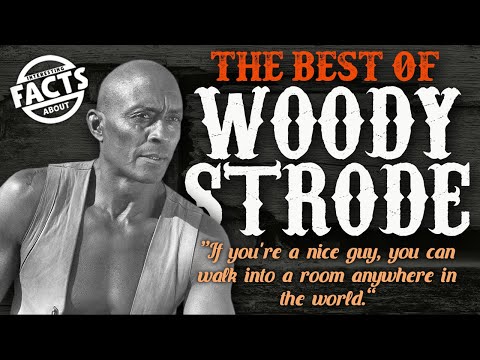
Remembering Woody Strode: His Life and Legacy

Woody Strode’s Early Years: The Making of a Star
Born in 1914 in Los Angeles, Woody Strode’s formative years laid the foundation for what would become a remarkable journey. His early life was marked by athletic excellence, which saw him excel as a decathlete and football player. At U.C.L.A., less known was an expected duel for the gold medal in the 1936 decathlon—pitting Woody, the formidable Black-American Indian, against the favored Glen Morris. However, this face-off never came to pass, as Woody was denied the opportunity due to an obligatory shop course he had to take. Even in these early years, his potential seemed boundless but obstructed by the era’s unfortunate racial constraints.
After college, Strode showcased his athletic prowess professionally by joining the National Football League. However, it was perhaps fate, or a fortuitous change of pace, that nudged him from the gridiron to the silver screen.
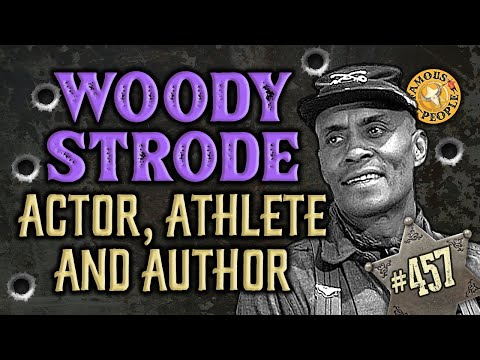
| Subject | Information |
|---|---|
| Full Name | Woodrow Wilson Woolwine Strode |
| Birth | July 25, 1914, Los Angeles, California, U.S. |
| Death | December 31, 1994, Glendora, California, U.S. |
| Cause of Death | Lung Cancer |
| Burial | Riverside National Cemetery, Riverside, California |
| Athletic Career | Notable for potential in 1936 Decathlon |
| Olympic Trials Issue | Missed due to mandated shop course at U.C.L.A. (1936) |
| Acting Debut | Sundown (1941) |
| Notable Dual Roles | Ethiopian King and Slave in The Ten Commandments (1956) |
| Notable Performance | Private Franklin in Pork Chop Hill (1959) |
| Marriage (1982) | Tina Tompson (age at marriage: Woody 68, Tina 35) |
| Marriage Duration | 1982 until his death in 1994 |
| Professional Sports | Football (UCLA, NFL), Wrestling, Track and Field |
| Acting Career Span | 1941–1993 |
| Significant Films | Spartacus (1960), The Man Who Shot Liberty Valance (1962) |
| Legacy | Pioneering African American actor in Hollywood |
Breaking Barriers: Woody Strode in Hollywood’s Golden Age
In the 1950s and 60s, Hollywood was a labyrinth of unspoken racial codas. For an African-American actor like Strode, roles were scarce and steeped in stereotype. But Woody, whose spirit was as formidable as his 6’4″ frame, took on these challenges with a captivating grace. He started chipping away at the edifice of typecasting with roles that, while minor, hinted at his latent potential.
Strode’s participation in prestige film projects wasn’t just a personal victory; it was momentous for the industry. Films like “The Ten Commandments” (1956), where he played dual roles—as an Ethiopian king and a slave—heralded a new versatility that Black actors could bring to the big screen.

Iconic Roles That Defined Woody Strode’s Career
A breakdown of Strode’s onscreen endeavors reveals a gallery of gutsy portrayals. None more memorable than his part in “Spartacus” (1960), where his alliance with Stanley Kubrick amplified his screen persona. But it was his role as Sergeant Rutledge in John Ford’s eponymous 1960 film that left an indelible mark. Playing an African-American cavalry officer accused of rape and murder, his character’s courtroom battle was a poignant metaphor for the struggle against ingrained prejudices—a topic as relevant then as now.
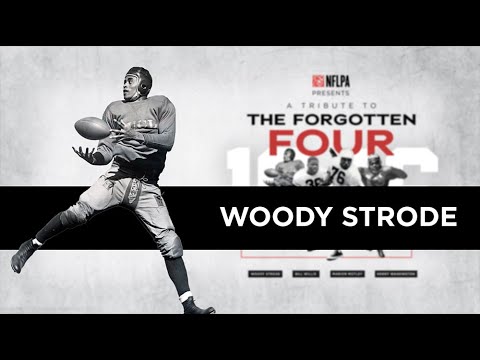
The Collaborative Genius: Strode and John Ford
The partnership between director John Ford and Woody Strode was a union of creative minds. Ford, a stalwart of American cinema, included Strode in his stock company—a rare honor for a Black actor. This professional duet gave us classics like “The Man Who Shot Liberty Valance” (1962), where Strode’s quiet strength magnified the narrative beat of change. His roles in Ford’s films weren’t mere performances; they were statements that helped to slowly pivot public perception about Black actors in Hollywood.
Behind the Scenes: Woody Strode’s Life off Camera
Away from the studio lights, Woody led a life as full as the characters he portrayed. His personal sphere included his second marriage in 1982 to Tina Tompson—who was 33 years his junior—remaining steadfast until his death. Together they faced the world until lung cancer claimed him on December 31, 1994. Woody Strode’s union with Tina and his family life added a dimension of warmth to his off-screen narrative.
His activism paralleled his onscreen roles, cracking the monolith of racial inequality one effort at a time. In life, as in films, Woody Strode’s persona was an embodiment of dignity and relentlessness—a trait that was mirrored in the respect he garnered from his peers. An anecdote reflective of his life was his vibrant smile, one that Dolly Parton Without makeup captured so naturally in her photos, a smile that epitomized authenticity and kindness.
Riding the Wave of Change: Woody Strode’s Later Years and Final Roles
Woody’s career endured as tastes and cinematic landscapes evolved. The ’70s and ’80s saw him navigate television and film with the ease of a seasoned pro. Every appearance, be it in the cult favorite “Kingdom of the Spiders” (1977) or the nostalgic television series “Fantasy Island” (1978), he left a lasting impression.
In his final film roles, Woody’s work retained an enduring quality, as evidenced in the critically acclaimed “The Quick and the Dead” (1995), a testament to his ability to adapt and excel.
Woody Strode’s Cultural Impact Beyond Film
The landscape of acting today owes its diversity to many, but Woody Strode’s impact is emphatic. He paved avenues for actors of color, challenging and changing the status quo. His legacy has catalyzed dialogues on race and representation, perpetually pressing the industry towards inclusivity. Organizations and advocacy groups continue to herald his contributions, recognizing how he charted a course for the equitable treatment of underrepresented groups within the media.
A Giant Remembered: The Enduring Influence of Woody Strode
Today, Strode’s trailblazing work is a touchstone in discussions about diversity in filmmaking. Both scholarly and media circles give nods to his extensive oeuvre, dissecting and learning from his craft. His footsteps have been followed by waves of new talent who draw inspiration from his unyielding determination to transcend the limitations imposed upon him.
Conclusion: Woody Strode’s Unforgettable Legacy
In sum, Woody Strode was a colossus of the cultural zeitgeist—a man who tackled adversity and turned it into opportunity. His legacy is a mosaic: part athlete, part actor, and all hero. As we reflect on the splendid tapestry of his life and career, his importance to the landscape of Hollywood remains crystal clear. Woody Strode’s indelible mark on the industry not only enriched the art form but expanded its horizon—for which every curtain call acknowledges a debt to his pioneering spirit.
Woody Strode: An Icon of Strength and Perseverance
Woody Strode’s journey through Hollywood is nothing short of fascinating. A man of towering height and a physique that could only be rivaled by Greek statues, Strode broke racial barriers and became a cinematic legend that filmmakers and actors alike looked up to. Let’s dive into some captivating bits and pieces about this trailblazing screen giant.
From Gridiron Glory to Silver Screen Stardom
Before Woody strode his way onto the big screen, he made a name for himself as a formidable athlete. He churned the soil of gridirons much like an unstoppable force, akin to the power Dolly Parton shows when she owns the stage—even when she’s rocking it in a rare dolly Parton no makeup moment. Strode had the charisma and the x-factor that could captivate audiences, whether he was in cleats or cowboy boots.
The Hollywood Colossus
In the glitz and glamour of Hollywood, where the 27 Dresses cast dazzles and where actors’ net worth is often discussed as casually as the latest scores in sports, Woody Strode stood tall. He wasn’t just a part of the narrative; he rewrote the playbook for African American actors. Just like Marcia Strassman, whose name became synonymous with the beloved TV show “Welcome Back, Kotter, Strode became an enduring figure in the Western genre and beyond.
A Sterling Example of Resilience
Woody Strode’s life wasn’t all smooth sailing, but this man knew how to weather a storm. His resilience could be compared to the tenacity needed by john Nichols when navigating the complex world of mortgage rates and financial advice. Strode marched on, unfazed by the obstacles thrown his way, and his legacy is a testament to the determination and grit of a true pioneer.
Not Just Another Face in the Crowd
As unique as his contribution to cinema was, Woody Strode was far from being just another name or a fleeting memory like a forgotten Tubepornstars headline. Instead, he carved out a reputation that made him as unforgettable as a classic car that stands out even in the best-stocked body Shops near me. His unmistakable presence and deep baritone voice made each of his appearances a memorable event.
Wealth Beyond Dollars
While the Kathy Hilton net worth conversations might fascinate some, Woody Strode’s wealth was not just in dollars and cents—it was in the barriers he broke and the paths he paved. He wasn’t hoarding riches; he was amassing a legacy of inspiration and change that would enrich generations to come.
A Legacy Cast in Celluloid
To sum it up nicely, Woody Strode was a giant in more ways than one. Not just because of his colossal height, but because of the massive footprint he left on Hollywood and the world. His story is a shining example of how talent, paired with an unyielding spirit, can blaze trails for a brighter, more inclusive future.
Woody Strode’s screen legacy is an inspiring chapter in the annuls of cinema. As we revisit his filmography, we’re reminded that it’s not just the roles we play but how we play them that truly makes a lasting impact.

What happened to actor Woody Strode?
– Well, buckle up, because Woody Strode’s life was quite the rollercoaster. Known for his powerful on-screen presence, he sadly passed away from lung cancer on the last day of 1994 in Glendora, California. Aged 80, with his boots on, he left behind his wife, Tina. The fella is now resting at Riverside National Cemetery. His Hollywood legacy? It’s etched in stone.
Was Woody Strode in the Olympics?
– Olympics? You bet, Woody Strode had his eye on Olympic gold, but fate had other plans. Back in ’36, everyone was buzzing about a face-off between Strode and Glen Morris for decathlon glory. Alas, Strode got tangled up in a college shop course requirement and never made it to the trials. Talk about a missed shot at Olympic stardom, huh?
Did Woody Strode play two parts in the Ten Commandments?
– Talk about a double whammy! In ‘The Ten Commandments,’ Woody Strode showed off his acting chops with not just one, but two roles. Under the billing “Woodrow Strode,” he brought life to an Ethiopian king and a lowly slave. That’s right, the man was killin’ it in dual roles, giving audiences twice the Strode power!
Did Woody Strode have a son?
– Did Woody Strode have a son? Sure did! He didn’t just play strong characters; he was a family man, too. Although specifics about his children are as tight-lipped as a clam, there’s no doubt this legendary actor passed down his larger-than-life persona as a legacy.
Did Woody Strode play in the NFL?
– Strode’s not just a Hollywood name; he was as tough off-screen as he was on it, playing for the NFL before he went all-in on acting. He bulldozed through defenses, quite the gridiron gladiator, before he swapped his cleats for the spotlight.
How tall was Woody Strode and how much did he weigh?
– Tall as a tree and strong as an ox, Woody Strode stood a towering 6’4″ and tipped the scales at a solid 220 pounds. With a frame that large, he was practically made for the silver screen – and, boy, did he fill it well!
Who was Woody Strode wife?
– So, who was the lucky lady? Woody Strode’s better half was the much younger Tina Tompson. Despite the age gap, they kept the flame burning bright from ’82 until the curtain call on Woody’s life in ’94. Romance alive and kicking, folks!
Was Woody Strode in the military?
– Military man? You bet! Woody Strode served his country before he served up dramatic performances. While details are sketchier than a doodle, it’s known he wore the uniform with pride, just as he wore his roles in Hollywood.
Who was Woody Strode married to?
– Twice hitched, Woody Strode found love with Princess Luukialuana Kalaeloa (aka Luana Strode), and later, the charm must’ve struck again because he tied the knot with Tina Tompson in ’82. Both times, it seems like he hit the jackpot!
How historically accurate is The Ten Commandments movie?
– Historical flicks are a mixed bag, and ‘The Ten Commandments’ is no exception. While it’s chock-full of drama and awe-inspiring scenes, some parts play fast and loose with facts. Think of it as history with a side of Hollywood’s secret sauce – spicy, but not always spot-on.
Who was the black actor named Woody?
– The black actor named Woody? That’s Woody Strode, folks, standing tall as a legend both in Hollywood and in sports. He broke barriers and bust stereotypes, a trailblazer from his cleats to his headshot.
Did Woody Strode have children?
– Kids? You betcha. Woody Strode’s family tree included branches for his offspring, but if you’re looking for a family album, you might be chasing a ghost. Seems like Woody’s kin preferred life away from the klieg lights.
Whose baby is in Halloween 6?
– Now that’s a curveball! The baby in ‘Halloween 6’ is a mystery wrapped in a riddle, but one thing’s for sure: Woody Strode’s not in that family photo. Different story, different folks.
Is Woody named after Woody Strode?
– Is Woody named after Woody Strode? Whoa, Nelly! That’s a rumor that’s been galloping around, but no siree, the lovable sheriff from ‘Toy Story’ isn’t the spitting image of our Hollywood cowboy. Just a happy coincidence with a name like that!
Is Woody in Toy Story named after Woody Strode?
– Woody in ‘Toy Story’, named after Woody Strode? Hang on to your hat – that’s a big negative, Ghost Rider. The Pixar brain trust hasn’t tipped their hat to that connection. Seems like they just pulled a great name out of a cowboy hat for our animated buddy.

